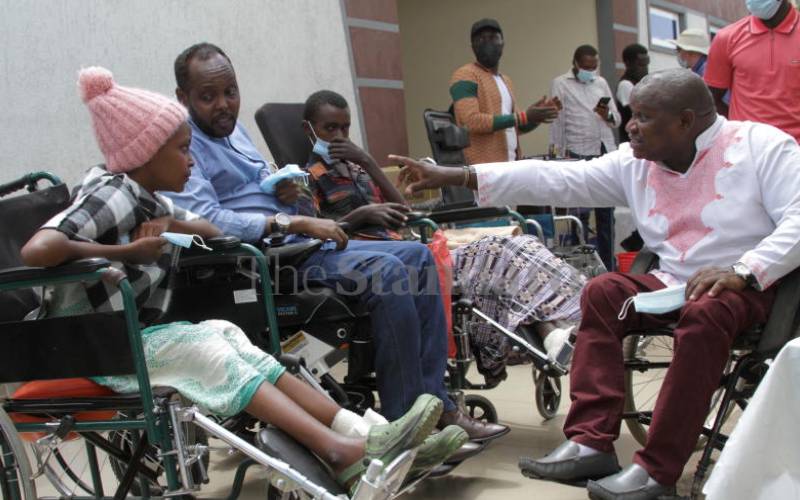×
The Standard e-Paper
Fearless, Trusted News

National Council for Persons with Disability chairperson Peter Muchiri (right), Executive Director Harun Hassan (Second left) with survivors of road traffic crashes in Nairobi on November 21, 2021. [David Njaaga, Standard]
At least 3,900 people have died on Kenyan roads due to accidents from January up to November 16, 2021, compared to 3,200 deaths in the same period last year, representing a 16 per cent increase.